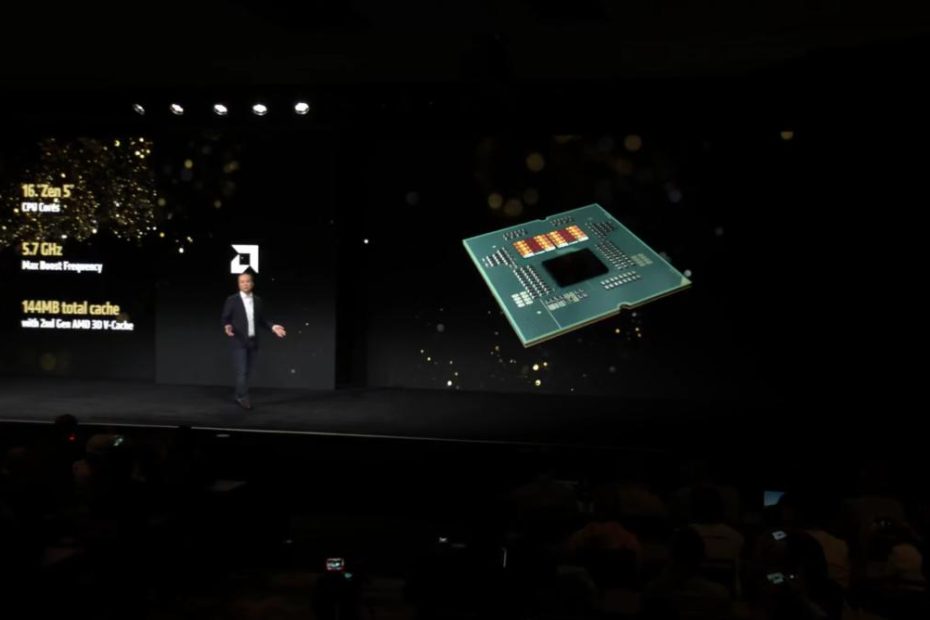Right now, AMD is at the top when we talk about the best processors for gaming, but it still took CES 2025 to take a victory lap and extend its lead. To open the keynote, AMD unveiled the Ryzen 9 9950X3D and Ryzen 9 9900X3D, both of which will be available in the first quarter of this year.
The performance here doesn't affect matters much, as AMD has already claimed the best slot for gaming processors with its wildly popular Ryzen 7 9800X3D. As you can see below, AMD claims an average of 8% lead over the last-gen Ryzen 9 7950X3D after testing 40 games. It's not surprising that graphically intensive games like Avatar: Borders of Pandora And Black Myth: Wukong see little advantage, but AMD claims a lead of up to 58% in a game like Counterattack 2.
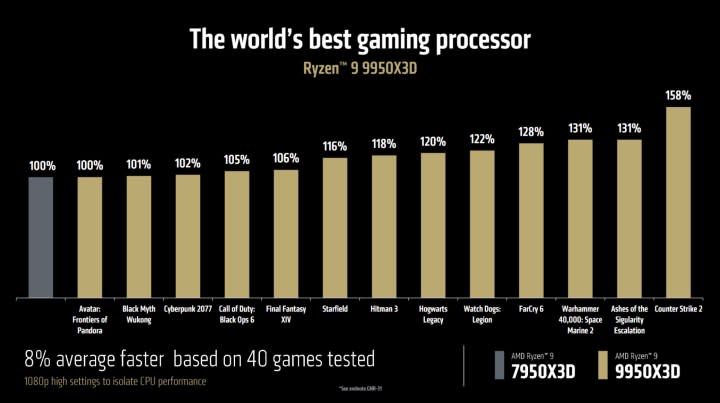
AMD
An 8% lead is fine, but AMD is really showing its gaming prowess over Intel. Compared to the Core Ultra 9 285K, AMD says the Ryzen 9 9950X3D is on average 20% faster at 1080p. There are still those graphically demanding games, but AMD claims boosts of up to 40% Warhammer 40K: Space Marine 2 and 64% indoors Watch Dogs: Legion.
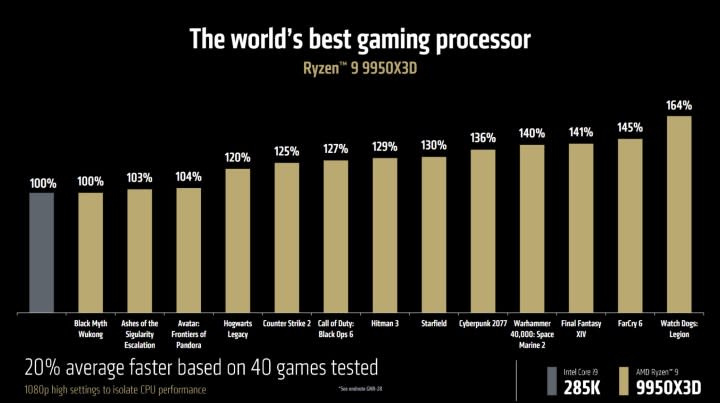
AMD
It's no surprise that AMD's new CPUs are dominating in gaming, as they include AMD's second-generation 3D V-Cache. However, unlike the Ryzen 7 9800X3D that is already available, the Ryzen 9 9900X3D and Ryzen 9 9950X3D are aimed at both gaming and productivity workloads with 12 and 16 cores respectively. Margins are a bit tighter on that front.
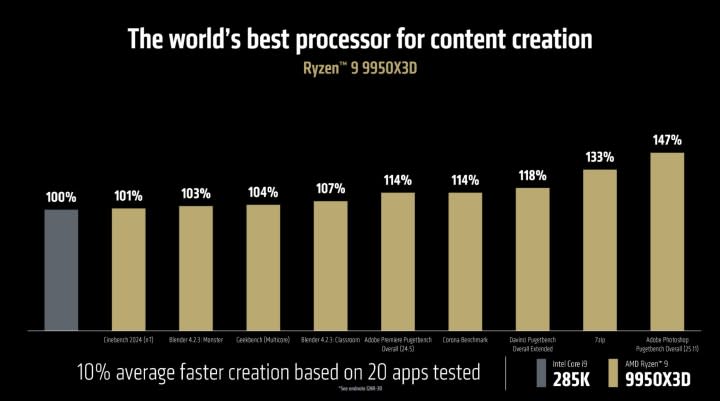
AMD
Compared to Intel, AMD says it is about 10% faster in productivity workloads. The battle is fierce in rendering applications like Blender and Cinebench – an area where Intel's latest CPUs are particularly strong – but AMD comes out ahead with margins of 14% in Premiere Pro and a whopping 47% in Photoshop.
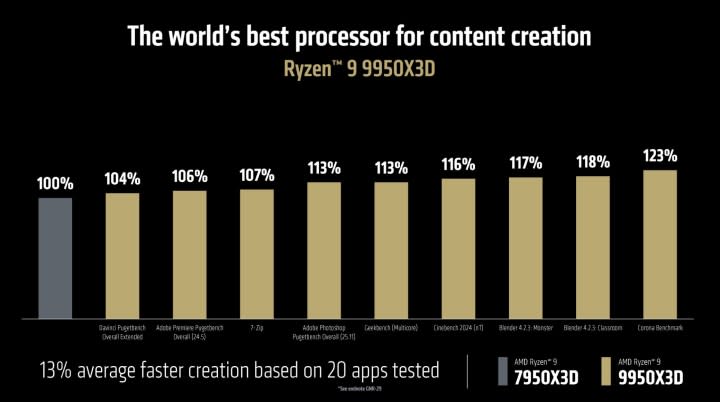
AMD
For the gen-on-gen comparison, AMD claims a 13% lead, albeit with far fewer peaks and valleys than what you can see in the Intel comparison. That's not so surprising. As you can read in our Ryzen 9 9950X review, AMD's latest Zen 5 desktop CPUs don't claim huge leaps over the last-generation Zen 4 options, but they are consistently faster in almost every application.
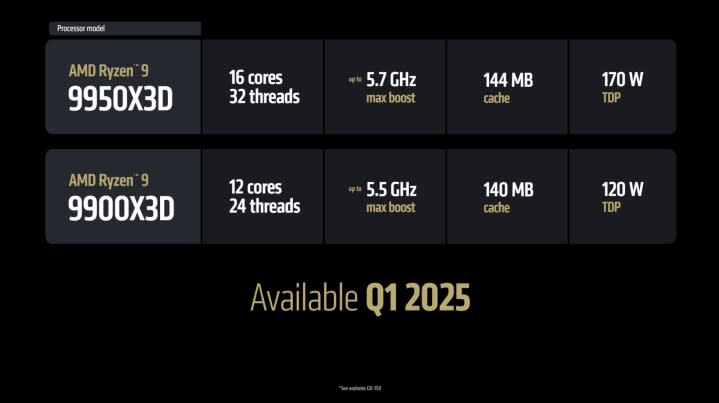
AMD
As is always the case, it's important to treat these performance metrics with a healthy dose of skepticism. I saw some pretty big performance differences between AMD's claims and real-world performance with chips like the Ryzen 7 9700X and Ryzen 5 9600X – an issue that AMD eventually resolved through several updates. Anyway, I'll wait to judge until I get my hands on the chips to test myself.
AMD hasn't given a firm release date for its new X3D options yet, but they should arrive soon. With clear performance comparisons, they will likely be among the first AMD products to hit stores in the first quarter of this year.
